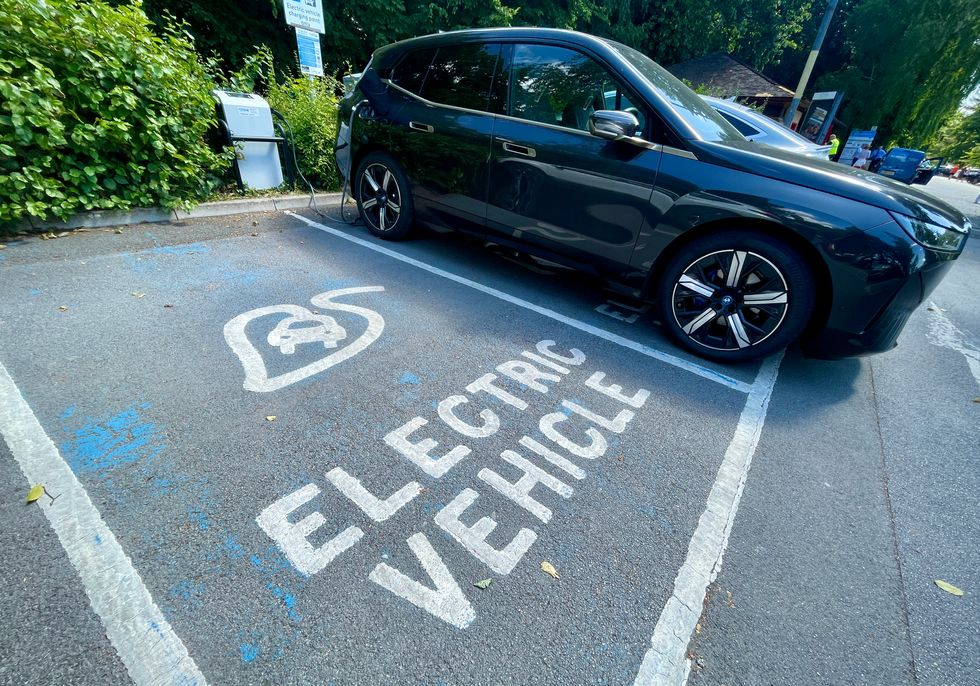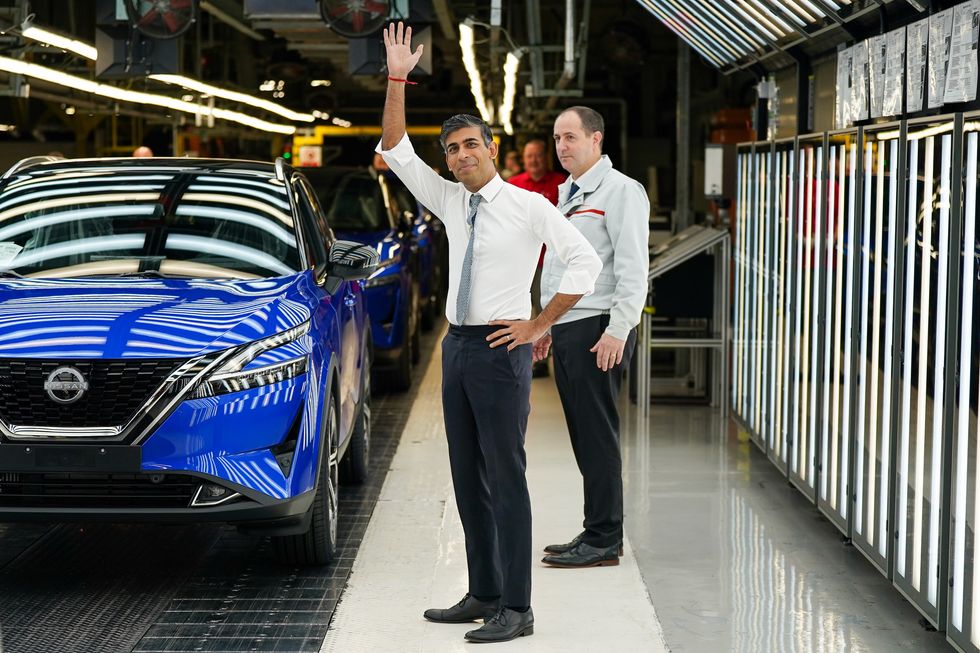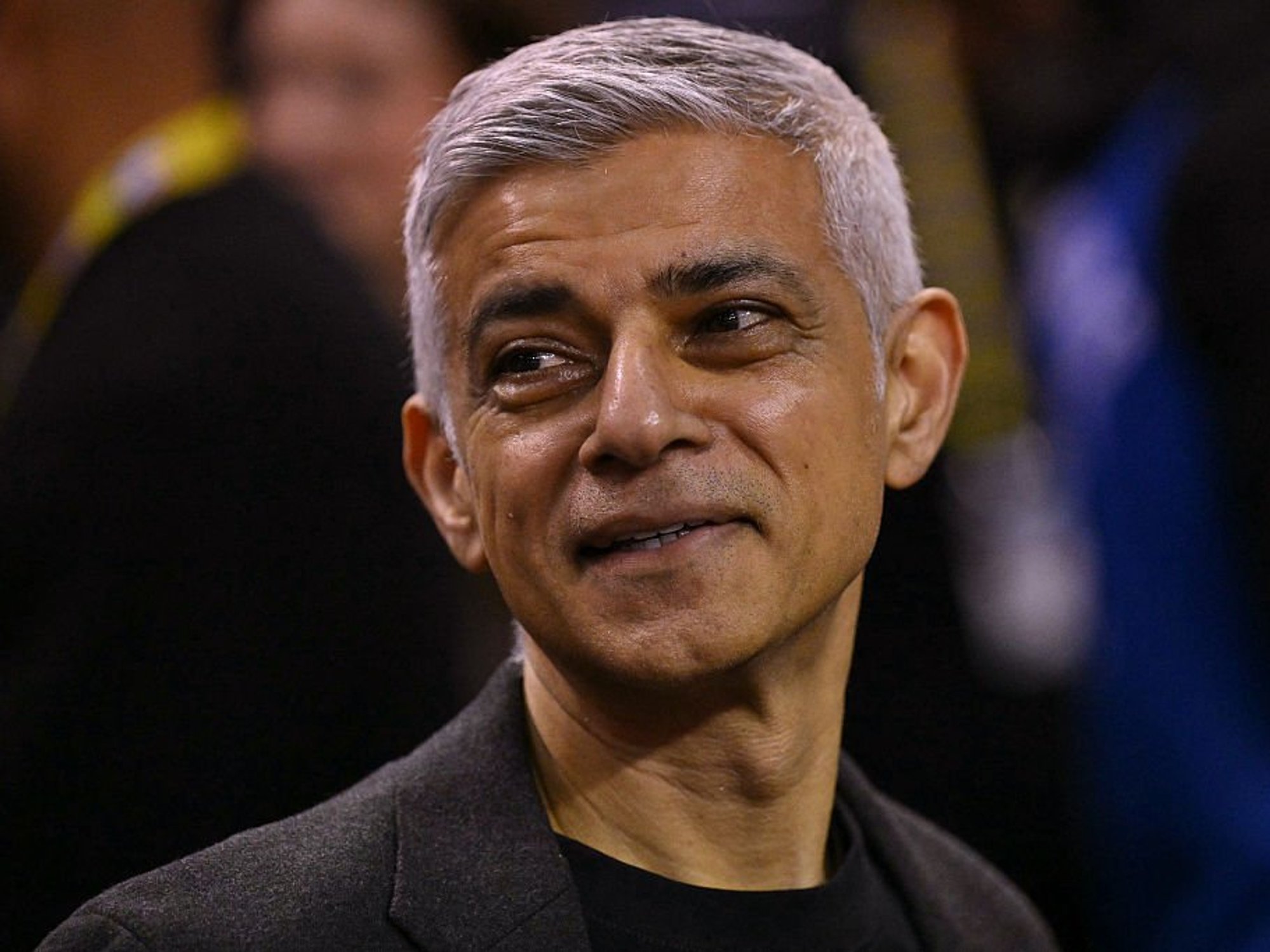New laws will see the UK have ‘most ambitious timeline’ to encourage drivers to ditch petrol and diesel

The new rules mean all cars and vans produced after 2035 need to be zero emission
Don't Miss
Most Read
The Government has praised the introduction of new laws designed to force manufacturers to produce a minimum number of electric cars every year.
The new Zero Emission Vehicle mandate has launched and will require car brands to sell a minimum proportion of electric cars and other clean vehicles.
The new rules, which were formally unveiled today, will see at least 22 per cent of cars sold by manufacturers in the UK be zero emission.
Manufacturers must adhere to the new rules or face huge costs, amounting to £15,000 per car and £9,000 per van for each polluting vehicle sold above the limits.

The Government has hailed the new electric car plans
|GETTY
The mandate will also see targets increase until 2035, with a threshold of 80 per cent for cars in 2030 before reaching 100 per cent by the middle of the next decade.
Car brands have welcomed the new rules, saying it will give confidence to drivers by ensuring there is a constant supply of electric cars.
There are hopes that the rules will eventually force prices down for consumers and incentivise the further development of the public charging network.
Anthony Browne, the Government’s technology and decarbonisation minister, will visit an electric vehicle charging hub in central London later today.
He said: “Alongside us having spent more than £2billion in the transition to electric vehicles, our zero-emission vehicle mandate will further boost the economy and support manufacturers to safeguard skilled British jobs in the automotive industry.
“We are providing investment certainty for the charging sector to expand our charging network, which has already grown by 44 per cent since this time last year.
“This will support the constantly growing number of EVs in the UK, which currently account for over 16 per cent of the new UK car market.”
The bp pulse charging hub contains a number of chargers, contributing to the more than 53,000 devices around the UK, according to the latest data from Zapmap.
The Government announced that it was still on course to reach its goal of installing 300,000 EV chargers across the country by the end of the decade.
Akira Kirton, vice president of bp pulse in the UK, praised the introduction of the mandate, saying it would help grow the industry for manufacturers and drivers.
He added: “This mandate instils confidence in our strategy, reaffirming our plans to invest £1billion over 10 years to continue to develop hundreds of EV charging hubs across the country by 2030 to bolster the UK’s charging infrastructure.”
This comes as new data has revealed that the Government is set to miss its own targets for the number of EV chargers near motorways.
The Department for Transport (DfT) had plans to ensure there are at least six rapid or ultra-rapid chargers at every motorway service station in England by the end of 2023.
RAC analysis found that just 46 out of 119 sites – or 39 per cent – met the target, despite the DfT saying the number of public chargers was “surging across the country”.
LATEST DEVELOPMENTS:
- New driving law changes will help motorists save thousands after EU agrees to delay electric car tariffs
- Car insurance price chaos to continue without help for drivers - 'don't expect a change any time soon'
- Drivers warned of £80 fine for clearing windscreen frost with method that can 'damage engine components'

Rishi Sunak backed Britain as an EV nation following Nissan's £2billion investment
|PA
Reflecting on the impact of the ZEV mandate, Mike Hawes, chief executive of the Society of Motor Manufacturers and Traders (SMMT), said massive investment in recent years was a huge boost to the industry.
He added: “The regulation means the UK retains the most ambitious timeline of any major market yet without private consumer incentives. While manufacturers offer a vast range of zero-emission vehicles, demand must match supply.
“Delivering a buoyant EV market means giving all consumers the confidence to invest, which requires an attractive package of fiscal incentives, mandated infrastructure targets and a consistent message that encourages drivers to switch now.”











